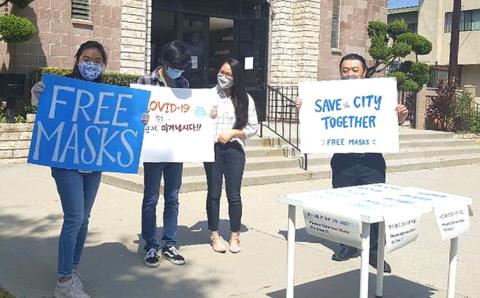Note: Readers are strongly encouraged to read the reports referenced here for fuller understanding. A summary of the CRC’s position can be found at bit.ly/2Zl97Ro.
In 1970, after Canada decriminalized homosexuality, synod (the broadest governance body in the Christian Reformed Church) appointed a study committee to articulate the church’s position on same-sex attraction. The result, Report 42, was adopted in 1973.
Report 42 said that being same-sex attracted is not sinful, but that same-sex sexual intimacy is. That distinction was considered progressive in its time. In fact, there were CRC congregations and even other denominations asking the CRC to declare that being same-sex attracted was sinful.
Forty-seven years and at least four study committee reports later, the CRC’s stance has not changed. It remains consistent with the pastoral advice initially offered in 1973, namely that “homosexual practice must be condemned as incompatible with obedience to the will of God as revealed in Holy Scripture.”
What many people do not know or have forgotten is that Synod 1973 also called members of the CRC to a very high standard of pastoral care for those who experience same-sex attraction, calling churches to encourage full participation from them in the same way that is expected of heterosexual people, including holding offices of elders, deacons, and pastors. Pastors were called to be informed about homosexuality and to call members and officebearers to the responsibility they bear toward same-sex-attracted persons in the church.
Woeful Pastoral Care
It turns out that the CRC fell well short of the mark on pastoral care. A committee that reported to Synod 1999 surveyed clergy and found that 74% said they knew the 1973 report well; 25% said they knew only about the distinction made in 1973 or else knew almost nothing about the report; and 65% percent said the pastoral care guidelines of 1973 were not effectively carried out in their congregations.
That committee also reported that while the church was quite silent, a community made up of persons who love the Lord deeply, many struggling with their sexual identity, had all been waiting for their church to keep something of its promises. Synod 1999 called the church to repentance, and three years later, that committee provided the church with a plethora of resources to improve pastoral care for persons who experience same-sex attraction.
Societal Landscape Changes
Since then, same-sex marriage was legalized across Canada in 2005 and in the U.S. in 2015.
In light of that, Synod 2013 appointed a Committee to Provide Pastoral Advice on the Issue of Gay Marriage to give guidance on how CRC members, clergy, and churches can apply the denomination’s position in the new legal landscape.
The committee came to Synod 2016 with two reports, both of which were provided to the churches. However, synod recommended the guidance of only the second report, which included “prohibiting the solemnization of same-sex marriages and [strong] cautions about involvement of officebearers in such ceremonies as well as distinctions between participation in the life of the church and participation in its leadership.”
Looking Ahead to 2021
Synod 2016 also appointed a new Committee to Articulate a Foundation-Laying Biblical Theology of Human Sexuality to provide “clear ethical guidance for what constitutes a holy and healthy Christian sexual life.” Part of its mandate is to outline how a Reformed hermeneutic “does or does not comport with readings of Scripture being employed to endorse what are, for the historic church, groundbreaking conclusions regarding human sexual behavior and identification.”
The committee’s report is expected to adhere to the CRC’s view on marriage and same-sex relationships as adopted in 1973. After an interim report in 2019, the committee’s final report will be sent to the churches in November 2020 to prepare for discussion at Synod 2021.
We asked six people for their thoughts about their biblical view of same-sex relationships and the CRC. Three of them are heterosexual and three are same-sex attracted. They are equally divided on wanting to see the CRC affirm same-sex marriage and wanting the CRC to reaffirm its traditional view of marriage. One person requested anonymity because of the ramifications feared if she were identified. The Banner has agreed to grant that anonymity, using *Sylvia as a pseudonym.
Here are their thoughts, in their own words.
Jen Vander Heide, 36, librarian
Jen Vander Heide and her wife, Sarah Jacobson, are members of Sherman Street CRC in Grand Rapids, Mich.
I am a child of this denomination. I grew up in Holland, Mich., going to Christian school, attending services twice on Sunday, and discussing the sermon with my grandfather during coffee time. I was a fourth-generation Calvin University graduate, and, after finishing graduate work, I took a teaching position there.
Being gay was not something I grew up wanting to be; for the first half of my life it was a source of deep shame. I hid it from those around me because the CRC taught that if I revealed who I was, I would live a life of aloneness and brokenness.
When I finally came out in my late 20s, unable to carry the secret any longer, I went on a quest to try to understand what type of God would allow me to be gay. I was shattered and angry.
I searched the Scriptures. I found the verses in the Bible often used to talk about gay people. I listened to the debates ... none of the arguments satisfied my questions. I kept searching.
I will always remember when I found John 10:10. There Jesus says: “I have come that they may have life, and have it to the full.” For me, this was the radical truth of the gospel. Jesus came to bring me life—a full life.
To me, the CRC’s theological stance that LGBT people are broken and incapable of righteous love does not bring life. Instead it brings death, either physical or emotional, to LGBT people in our denomination. This troubles me because our interpretation of the Bible and resulting theology should bear good fruit—it should bear life.
Jesus confirms this in Matthew 7 when he speaks of true and false prophets: “By their fruit you will recognize them” (v. 16). What fruit has been born from the CRC’s stance about LGBT people and their ability to love? Look at my life. Look at the lives of the LGBT people you know and their families. Look at those who have been forced to leave. Where is the good fruit of this theology? I see none.
What, then, is the path that bears good fruit? Perhaps recognizing that the New Testament is a radical story of inclusion that made even the first Christians uncomfortable. The first thing that God called the new church to do was to include the Gentiles. This was hard for Peter. In Acts 10, God instructed him: “Do not call anything impure that God has made clean” (v. 15). Jesus was clear that he came for more people than the early Christians originally imagined. In John 10:16, Jesus tells us: “I have other sheep that are not of this sheep pen. I must bring them also. They too will listen to my voice, and there shall be one flock and one shepherd.” Let us more fully become one flock in love.
Sylvia*, 30s, married and living in Canada
I believe that God calls us to holiness in all areas of our lives, including sexuality, and that the creational design for sexual intercourse is between a man and a woman, bound together in marriage.
But I think the church has made numerous errors in the way it has approached questions of sexuality. We have often focused primarily on LGBTQ+ questions while avoiding other large cultural shifts on questions of love, sex, and marriage that have taken root in our pews.
One example of this type of largely unexamined but accepted shift is our perception of marriage. We have loudly affirmed, per 1973, that God has called same-sex-attracted Christians to celibacy and that this is a rich and full life. Meanwhile, we have exalted marriage far beyond what the New Testament does. For heterosexual Christians, marriage has become a status marker, a coming of age, and it’s been enrobed in nearly Disney-esque fairy tales. Our church programming and adult discipleship ministry assume adult members are married (and having children).
The contradictions should be obvious. By buying into marriage as the be-all, end-all, heterosexual Christians have failed to examine the ways sinful narratives and practices have come into our understandings of marriage and sex while emphasizing (overemphasizing) same-sex sexual sins. Heterosexual Christians must uphold for themselves the same standard of discipleship and obedience expected of LGBTQ+ Christians, name the ways we have sinned, repent, and ask for continued accountability for faithful discipleship.
There’s a persistent narrative around that goes like this: a person grows up in church, holds a traditional perspective, then meets gay friends for the first time. Eyes are opened, and the person becomes affirming (of same-sex relationships). To be sure, this happens. But narratives like this can also lead to the assumption that those of us who still hold a traditional perspective don’t know or aren’t in close relationship with gay or lesbian Christians. If we were, we’d obviously change our position. For me, that hasn’t been the case.
I’ve wrestled with these things in the living rooms of close friends (including close friends who are gay and friends who are on the opposite “side” of this) and shed tears over them. I’ve heard the deep hurt that has come from the way the church has spoken about these issues and the stances the church has taken. These experiences have added complexity to the narratives I’ve once held, have moved me deeply, and called me to repentance for the ways I’ve erred. But I’ve not changed my fundamental position. I have, however, gained rich, life-giving friendships.
I believe there are quieter, deeply biblically faithful, and pastorally sensitive voices that are getting drowned out by the tone and tenor of this conversation—not that this conversation is not rightly passionate; these are indeed deeply weighty things. But weightiness need not bring about shouting matches, incivility, hostility, and broken relationships. There has to be a better way.
Fred Heerema, 71, retired mediator
Fred Heerema and his partner, Lyle Clark, are members of First CRC in Toronto, Ont.
I believe the Bible sets out the norm for all intimate human relationships—faithfulness guiding self-giving love to maturity. This norm also applies to myself as a LGBT believer in a committed, same-sex relationship.
I think LGBT persons are often thought of by CRC believers as driven only by their sexual desires and needs when they would never consider their own heterosexually oriented sons and daughters in such a reduced way. It would help the CRC if it could truly hear the full life experiences of its LGBT members, including their joys, challenges, questions, longings, and the ways we experience enrichment through committed relationships. As a part of God’s good creation, I want my gift of sexuality affirmed and celebrated, not locked away. My healthy (and sexual) life has developed in a manner both parallel to and uniquely different from those of heterosexual people. Celibacy is not the way for me any more than it would be for a heterosexual person, unless I choose it or perceive it as a gift.
Much time and energy has been spent by the CRC on the isolated biblical texts that make some possible reference to homosexual activity. I believe such studies are unhelpful in the church’s desire to understand and include its LGBT members. I would urge the CRC to stop thinking that the Bible alone has “the answer” to every question it might have on these matters. I wish the CRC would place more emphasis on how God’s call to love our neighbors as ourselves can lead to new, Spirit-led discernment of how the church can embrace the multiple types of diversity within our human community. I believe the CRC must also engage meaningfully with current scientific understandings and social attitudes lest its witness be compromised and its relevance questioned.
Given the self-limiting constraints the CRC has to date placed on study committees reporting to the church on matters involving its LGBT members, many LGBT members despair of belonging in the CRC with their full lives and have left the church in their past.
After so many decades involving repeated study committees, there are CRC congregations that just wish to move forward and to be more fully inclusive of their LGBT members regardless of their relationship status. I believe such congregations must be allowed to be fully welcoming without fear of censure or discipline by the larger church bodies. This “local option” has been an important means of accommodating conflicting views on various other contentious issues within the CRC and it should also be available in this case.
Joseph Bowman, 52, student at Calvin Theological Seminary
Joseph Bowman is a member of Alliston (Ont.) CRC.
I am a same-sex attracted man, committed to celibacy for life. I believe that homosexual practice is sin; I have always believed that. In fact, I have never physically acted on my attractions.
I spent 20 years of my life begging God to make me straight. I owned every book written in the 1980s or 1990s for Christians who wanted to overcome unwanted same-sex attractions. I went to ex-gay support groups and Exodus conferences for years. I even went to a residential ex-gay live-in program for a time. These things were supposed to fix me. But when all was said and done, there was no change in my attractions.
In the summer of 2007, my counselor asked me, “Joseph, if your attractions never change, will you still follow Christ?” And my initial answer was no. Absolutely not. I wanted to be fixed. I wanted to be married with kids, like “normal” people. How could I possibly continue to trust in God if I’m never going to be healed of this?
My counselor said to me, “Joseph, the issue isn’t that you’re same-sex attracted. The issue is that you hate yourself because of it.” And he was right. Almost immediately, my self-hatred disappeared. I felt like an authentic person for the first time in my life. Yet my attractions remain to this day.
For years, I said no to God’s call to ministry in my life because I thought I was unfit for ministry until I was fixed. But I could no longer ignore God’s call in my life. I graduated from Tyndale Seminary in Toronto in 2010. I was licensed to exhort in Classis Toronto for six years, and I am now completing my studies at Calvin Theological Seminary, hoping to be declared a candidate for Minister of the Word by Synod 2021.
The CRC stands at a crossroads. It is time to make a choice. God’s word is clear. Marriage is for one man and one woman. No amount of proof-texting and (faulty) hermeneutics can make Scripture read that God blesses a marriage between two people of the same sex. People can tell their stories to pull on the heartstrings, but my story must submit to the truth of Scripture. For me, to live is Christ, and I must die to my sin nature.
Our denomination cannot allow both opinions to coexist. As a soon-to-be candidate for ministry, I personally could not serve in a denomination that does not take a clear, unequivocal stance that homosexual practice is sin. One side is biblically solid; the other is not. One side or the other must leave the denomination. That might sound harsh, but to those who are perishing, the gospel is the smell of death (2 Cor. 2:15-16).
Leonard Vander Zee, 75, retired pastor
Leonard Vander Zee and his wife, Jeanne, are members of Church of the Servant CRC in Grand Rapids, Mich.
The CRC’s 1973 Synodical Report on Homosexuality appeared around the time I was just beginning as an ordained pastor. I saw the report as generally enlightened, especially its conclusion that homosexuality is an orientation rather than a perverse choice.
Increasingly, however, the lives and experiences of real people began to alter my views. I could no longer see them abstractly as “homosexuals,” but as whole, loving, gifted human beings, many of them committed Christians.
The 1973 Report’s distinction between choice and orientation is not found in the Bible. In Romans 1:18-27, Paul describes human rebellion against God. “The wrath of God is being revealed from heaven against all the godlessness and wickedness of people, who suppress the truth by their wickedness ... and worshiped and served created things rather than the Creator.”
Then Paul gives an example. “Because of this, God gave them over to shameful lusts. Even their women exchanged natural sexual relations for unnatural ones. In the same way the men also abandoned natural relations with women. ...” Paul is condemning what historians say were typical homosexual relationships in his time that often involved exploitation, pederasty, and sexual slavery. Paul was not being a homophobic bigot, but condemning widespread, perverse practices among the empire’s elite.
But these are not the same people we are talking about today, as the very language of the text shows. We are talking about baptized CRC members, not “godless” people who “suppress the truth.” They do not “exchange natural sexual relations” but form relationships out of their sexual orientation, which is as natural to them as heterosexuality.
Still, the 1973 Report demands that they remain celibate. But on what basis? Though Paul advocated celibacy for all unmarried Christians, he still acknowledged that not all are so gifted. Therefore, he wrote, “It is better to be married than to burn with passion” (1 Cor. 7:8-9). Since God ordained marriage as the covenant commitment in which sex belongs, the real issue here is same-sex marriage. Not all of our gay and lesbian members are able to or desire to live celibate lives.
Same-sex marriage is a relatively new, difficult, and complex issue for Christians. Unfortunately, Synod 2016 limited participation on the Committee to Articulate a Foundation Laying Biblical Theology of Human Sexuality to only those who agree with the 1973 report. Instead of sparking a real and open denominational discussion, the present committee can only defend our 50-year-old stance.
We need an honest, open, and thorough new look at the biblical evidence and the contemporary situation on this issue. That will demand a longer journey of study and mutual engagement in an atmosphere of love, trust, and forbearance. Choosing this path, the CRC could be a beacon of light for North American churches today.
William Koopmans, 61, pastor
William Koopmans and his wife, Louise, are members of Hope CRC in Brantford, Ont.
The Bible teaches that all people, and especially Christians, must seek to be pure, holy, and obedient in all realms of life, including their sexuality (Col. 3:5; 1 Cor. 6:18; 1 Thess. 4:3-5).
With regard to sexuality and marriage, the Bible indicates that God’s original intent, which remains normative for today, is to be a covenant relationship between a man and a woman (Gen. 1:27-28; 2:23-24; Mark 10:6-8; Eph. 5:25-33; 1 Tim. 3:2), and same-sex practice is inappropriate (Rom. 1:29; 1 Cor. 6:9).
While holding this view, it is important to develop an understanding of factors that might be part of the development and experience of sexual orientation and desire. Though it is easy as individuals to become myopic, the church collectively is looking at the many aspects of this issue—from Biblical interpretation to biological, epigenetic, sociological, psychological, and pastoral care dimensions.
Although through biblical conviction we ought not condone same-sex practice, we must nevertheless hear God’s call to show compassion and care for those who struggle because same-sex attraction is an issue, either for themselves or for a family member or friend. As God calls us all to obedience, difficult as that might be, he does not entitle us to substitute compassion for faithfulness to him. Contrary to a sentiment often implied, calling each other to obedience and accountability is not unloving per se—as Jesus demonstrated (John 8:11; 14:15) and Scripture emphasizes (Gal. 6:1-2; 1 John 5:2-3). In fact, mutually assisting each other in godly living is a genuine expression of love that is superior to the secular liberties advocated apart from God’s Word.
Differentiating between same-sex attraction and same-sex practice is very important. We also need to acknowledge the corporate, communal, and cultural dynamics that are part of this issue and take appropriate steps to promote responsible living in the framework of a Christian worldview. For example, it is now known that various chemicals can influence epigenetics. Children that are affected by such factors, perhaps even prior to birth, are not responsible for their condition. But what is being done to eliminate these negatively impacting chemicals? The products may be economically beneficial, but they should not be maintained if they lead to epigenetic compromise.
Sociological factors are also extremely influential. We are too complacent about the unbiblical curriculum that is being presented in many educational institutions in our society, and too often silent about the unbiblical lifestyles that are presented as normal, acceptable—and even desirable—in our present culture.
God calls us to reform in all areas of life. It is my hope and prayer that the CRC will adhere to a biblical position that does not permit same-sex practices while becoming better educated about the complexity of same-sex attraction and developing appropriate pastoral care and compassion for those who are dealing with such issues.
Discussion Questions
- How well do you know and understand the CRC’s current position on homosexuality? How clear were you of the 1973 distinction between same-sex attraction (or orientation) and same-sex sexual intimacy? Were you aware that persons with same-sex attraction can be an officebearer in the church?
- In reading the six viewpoints, where do you see commonalities and shared concerns among them?
- Why do you think our churches have fallen short of the pastoral care for people with same-sex attraction as recommended by the denomination?
- How would you spiritually walk alongside a fellow Christian who has same-sex attraction?
About the Author
Gayla Postma retired as news editor for The Banner in 2020.








